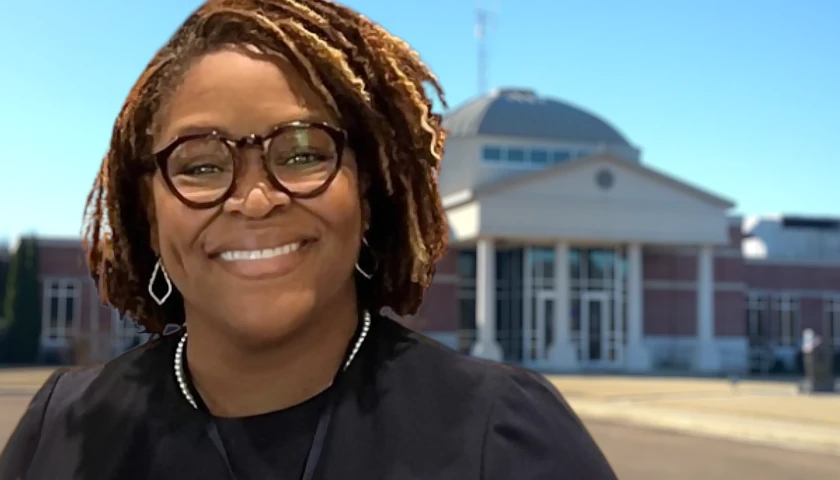by Teresa R. Manning
Even as the Trump inauguration nears, Biden continues to cause controversy, including with student loan cancellations.
On January 13, his Education Department announced yet another round of student loan forgiveness — this time, for more than 150,000 borrowers — bringing the Administration’s total number of individuals with student debt canceled to over 5 million.
The Department described these most recent beneficiaries as borrowers with disabilities, as well as those who are public service workers and also those “misled and cheated” by their institutions.
All three categories had already been cleared for what the administration has previously called “targeted relief efforts.“ So Monday’s actions just expanded the rolls, so to speak.
Last October, for example, the administration announced 60,000 cancellations for borrowers in the Public Service Loan Forgiveness (PSLF) Program, while in 2021, it had announced relief also for borrowers with disabilities as well as for graduates of bad actor for-profit schools such as Corinthian Colleges, then Ashford University and now “any school owned by the Center for Excellence in Education” because of findings that the Center misled students about salaries, employment prospects, and its private loan products. (Interestingly, the same has been said of many mainstream universities as well as law and medical schools.)
Republicans have been quick to denounce the expanded rolls, with Tim Walberg (R-MI), the new chair of the House Education and Workforce Committee, slamming the Department’s “Student Loan Swan Song”:
“The Biden Harris Administration is at it again… working on handouts, with zero accountability … [expecting] taxpayers — even if they never went to college — to pick up the tab.”
This sets the stage for the recently re-noticed bill by Rep. Glenn Grothman (R-WI), aka the “Protecting Taxpayers from Student Loan Bailouts Act.” Formally introduced as House Resolution 4771 in June of 2023, Grothman’s bill was integrated into the larger House legislation called the College Cost Reduction Act or H.R. 6951, introduced in January 2024 by Virginia Foxx, former House Education Committee Chair. But it never reached the House floor for a vote. So Grothman plans to reintroduce his bill this session.
The bill warrants attention principally because it aims to forbid future administrations from these kinds of student loan bailouts. Specifically, it prohibits the education secretary from taking actions that are “economically significant” and “would result in an increase in a subsidy cost.” It goes on to define “economically significant” as any executive action that is likely “to have an annual effect on the economy of $100 million or more” or would adversely “affect in a material way the economy, a sector of the economy, productivity, competition, jobs, the environment, public health or safety, or state, local, or tribal governments or communities.”
Obviously, the definition is broad, meaning the bill intends to prevent the Education Department from saddling taxpayers with these relief efforts, which amount to wealth transfers from regular Americans to imprudent borrowers.
While Grothman’s bill is fine as far as stopgap measures go and would commendably halt overreach by future Education Departments, it does nothing to address the root causes of the mess that is higher education finance.
It also fails to mention much more sizeable and therefore objectionable bailouts — for banks and corporations, for example — arguably singling out young Americans for hardship while more powerful entities get rescued. Such asymmetry seems wrong and contributes to a cynicism that America does not need.
As the National Association of Scholars (NAS) has previously stated, the higher education system, including its finances, needs much more far-reaching and serious reform, if not a complete house cleaning:
To be fair, higher ed’s problems are so numerous and longstanding, including not just out-of-control costs but staggering conformity and pathetic, politicized content. Those responsible are so entrenched that no single measure by Congress would suffice to cure it, except, perhaps, a moratorium on federal funding — maybe also a moratorium on operations — while authorities conduct a financial and legal audit to clean house. That audit would need to ask: Why are graduates so ignorant and unprepared for employment? Why is their debt so high while median salaries remain so low? Could industries simply recruit from high schools and bypass the post-secondary education altogether? Why are universities run by Democrats when their tax status presumes they are for the public interest not to benefit the political left?
On the topic of loan forgiveness, Congressman Grothman might also ask: Why has the rate of increase for college tuition been so high that it causes students to borrow so massively in the first place?
What explains this state of affairs where tuition gets more expensive than even medical care, while salaries, even for supposedly high-paying professions, stagnate?
The ancients would ask, Cui bono? Or: Who benefits?
NAS looks forward to hearing these questions and more like them, not just from Glenn Grothman but from the entire 119th Congress.
– – –
Teresa R. Manning is Policy Director at the National Association of Scholars, President of the Virginia Association of Scholars, and a former law professor at Virginia’s Scalia Law School, George Mason University. She authored the 2020 Report, Dear Colleague: The Weaponization of Title IX.





